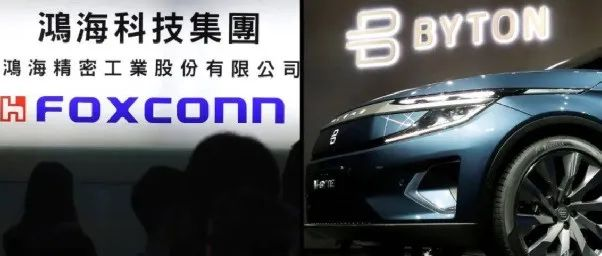Introduction
On October 18th, Foxconn held its Technology Day in Taiwan. The first batch of three electric vehicles developed on the MIH EV open platform by Foxconn (Model C–a pure electric SUV, Model E–a pure electric sedan, and Model T–an electric bus) were officially unveiled to the public. This marks a significant step for the well-known Foxconn in the field of electric vehicle manufacturing.
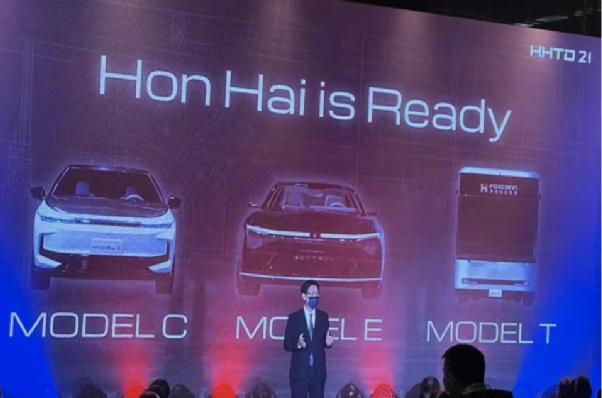
Along with the debut of the three electric vehicle models, Foxconn also announced ambitious goals for the electric vehicle market: by 2025, pure electric vehicles are expected to account for 5% of its manufacturing revenue, with a revenue target of $30 billion. 40% of the vehicle’s parts will be self-manufactured by Foxconn’s subsidiary, Hon Hai Group. This means that, in addition to the ability to manufacture entire vehicles, Hon Hai Group has the technology to produce most of the core components that electric vehicles require. In the domestic automobile market, only BYD, the current leader in the domestic electric vehicle brand, has such confidence.
Unveiling the Foxconn Electric Vehicle Family
All three new vehicles, Model C, Model E, and Model T utilize a new brand–Foxtron, which bears significant Foxconn features. The brand belongs to a joint venture between Hon Hai Foxconn, which built the MIH platform, and Yulon Motor (parent company of Luxgen). According to the plan, the Model C will be launched in Taiwan in 2023, followed soon by the Model E. Model E has a higher positioning, with a maximum horsepower of 750 and a zero-to-sixty acceleration time of 2.8 seconds. Its longest range can reach 750 kilometers. In terms of performance and range, at least in terms of current indicators, it still has a certain leading advantage.
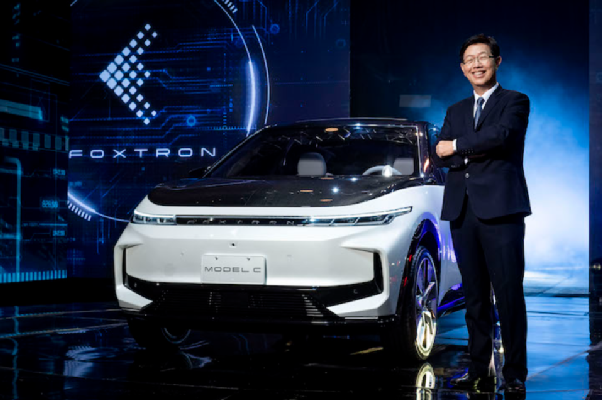
Compared to the two pure electric passenger cars, the Foxconn pure electric bus, Model T, is worth anticipating. The design of this model is relatively simple, with a maximum power of 260kW and a peak torque of 700 N·m, using safer lithium iron phosphate batteries. According to information disclosed by Foxconn, the Model T has completed durability testing of 200,000 kilometers and rigorous strength testing of over 1,000 hours, meeting the regulatory standards of the United States Federal Transit Administration. Before expanding into the US market, electric buses with Foxtron logos will begin commercial operations in the central and southern cities of Taiwan next year.As we all know, BYD electric buses have made great achievements in the global market and have won many orders. Especially in traditional auto powerhouse countries such as Europe, America, and Japan, BYD’s sales performance is very impressive, and its local market share is very high. Compared with the fiercely competitive market for pure electric passenger vehicles, the market demand for pure electric buses is relatively relaxed, and the demand is also high. For Foxconn, which also holds the three core technologies of “electronics, electric drives, and batteries”, occupying a place in this market will also play a significant role in promoting the development of the entire electric vehicle business sector in the future.
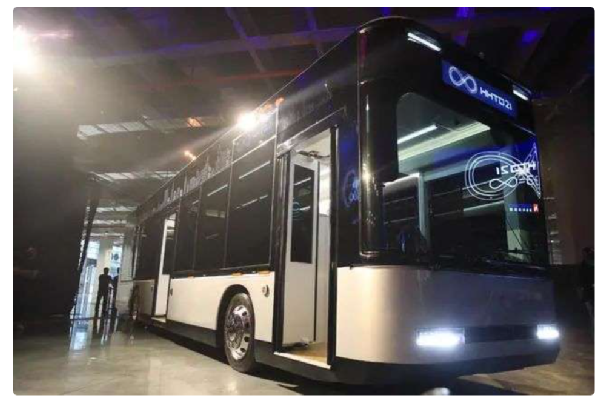
Can Foxconn and Yulon form a synergistic effect?
The MIH EV open platform was jointly launched by Foxconn and Yulon in October last year. Similarly, as a local Taiwanese company, Yulon Motors has been developing very poorly in recent years, and its products have shown a lack of competitiveness in the Chinese market. Faced with investment of hundreds of billions of dollars in new automotive industry technology, in order to survive, Yulon must cooperate with enterprises with more powerful financial resources. From the perspective of Foxconn, although it has invested a lot in the automotive industry in the past ten years, it has rarely been involved in complete vehicle engineering. Therefore, cooperating with Taiwan’s major OEM’s Yulon Motors, which has rich experience in complete vehicle manufacturing and is also a local Taiwanese company, is a good fit both culturally and in terms of business needs.
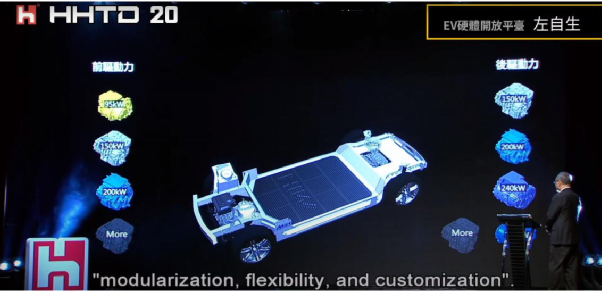
Moreover, with Yulon’s existing strength, it is difficult to be strong enough to participate in global competition in the short term, so Foxconn doesn’t have to worry about losing control of Yulon. In the joint venture established by the two companies last year, Foxconn contributed cash of 7.944 billion yuan, accounting for 51% of the shares, Yulon contributed a platform asset valuation of 7.632 billion yuan, accounting for 49% of the shares, and Foxconn has the final say in the joint venture. In the future, Yulon’s Luxgen and CMC brands will be the first customers of the MIH Advanced Product Platform, and will lead the transformation to electrification.
Foxconn Actively Lays Out in the Automotive Industry.Beyond Yulon, cooperation between Foxconn and other major automakers, especially those involving complete vehicle operations, is also progressing, with a stronger sense of contract manufacturing. Foxconn has established cooperative relationships with Fisker, an electric vehicle manufacturer, Thailand’s state-owned enterprise group PTT, the world’s fourth-largest automaker Stellantis NV, and Zhejiang Geely Holding Group. Among them, the most noteworthy is that Foxconn has acquired a pickup truck assembly plant in Ohio for $230 million in the United States, which will provide contract manufacturing services for Fisker’s production starting in 2024, with an expected annual output of 150,000 vehicles. If this project can be successful, it will greatly boost Foxconn’s search for contract manufacturing business for other start-up electric vehicle companies in the United States and even globally in the future.
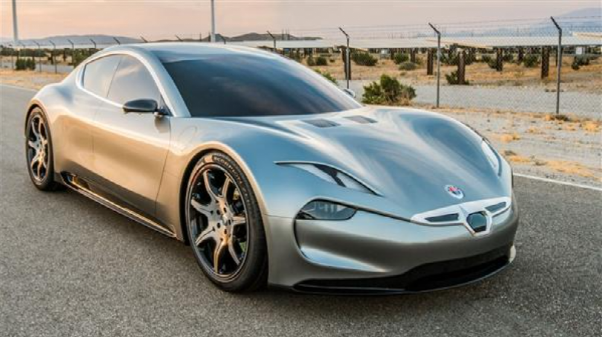
In fact, as early as 2005, Foxconn’s parent company Hon Hai Group acquired 100% equity of Taiwan’s Antai Electronics for $370 million and began to enter the automotive electronics field. Tesla, Mercedes-Benz, BMW, Beiqi, etc. are all Foxconn/Hon Hai’s customers. In 2015, Foxconn, Tencent, and Harmony Auto jointly founded Harmony Futeng to try to participate in the competition of new forces in car manufacturing, although it ultimately failed. Foxconn also participated in the restructuring of BYTON before. If it were not for a sudden turnaround by FAW, BYTON would have been operated by Foxconn. All these indications show that Foxconn has never slowed down its pace of entering the automotive industry, especially in the field of electric vehicles.
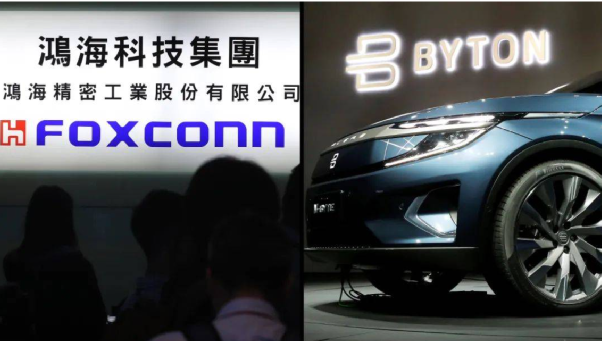
From Foxconn’s perspective, the order they most likely want to secure is undoubtedly the one from Apple’s car. But conservative Cook has been slow to act in the field of electric vehicles, forcing Foxconn to take the lead and make its own car first. Those familiar with the automotive industry know that no matter how extravagant the PPT is, it is all zero without a mass-produced model. For Foxconn, which is committed to contract manufacturing for other automakers, having a mass-produced product is also the best advertisement for its contract manufacturing business. Compared with the consumer electronics business, the scale is relatively small. For Foxconn, which has a relatively complete layout of the electric vehicle industry chain, the scale and prospects of the contract manufacturing automotive business are more attractive. With the constant emergence of competitors in the domestic consumer electronics industry, Foxconn will inevitably need to seek electric vehicle business to find a sustainable development foundation for itself in the future. So now everything is ready, just waiting for Apple’s official announcement of making a car.
This article is a translation by ChatGPT of a Chinese report from 42HOW. If you have any questions about it, please email bd@42how.com.
